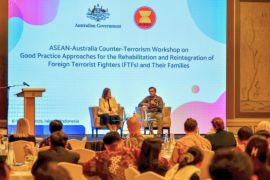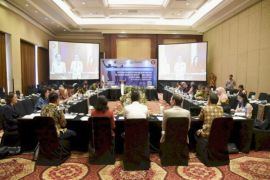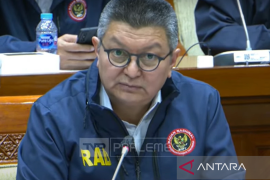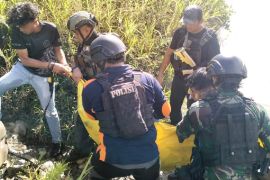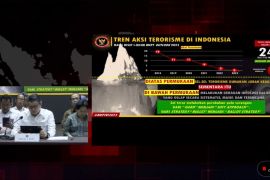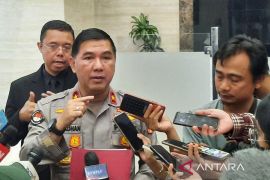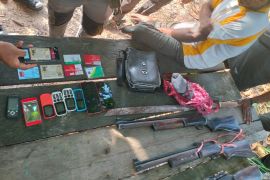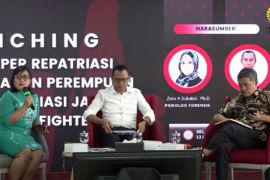"Radicalism is not only because of poverty, ignorance, frustration, and injustice, but even intellectuals are exposed to it," he said, when giving a lecture at the Graduate School of Pancasila University here, Friday (September 2) night.
Radicalism recruitment patterns are becoming more sophisticated. In just two hours a person can be brainwashed into doing things that are radical, the former police chief of Depok, Western Java said.
Radical ideologies have infiltrated a number of leading universities in Indonesia, so it needs intensive supervision. Even students who excel on campus have been radicalized.
"I appeal to the faculty, deans, rectors, teachers, and principals, to continuously monitor student activities and students, especially those who prefer to remain aloof," he said.
Radical groups are utilizing social media to propagate their understanding, Suhardi said, and added that they utilize the virtual world to indoctrinate the public.
Therefore, the Ministry of Communications and Information needs to take an active role in preventing radicalism evolving through the social media, he said.
To ward off radicalism it is necessary to maintain the noble values of Pancasila, university rector Wahono Sumaryono said. And they are ready to fortify the campus against such an ideology, he added.
"There are three threats facing a great nation, namely terrorism, drugs, and corruption. They all need to be handled together," he said.
For that, during any new admissions a public lecture course is useful for students to enrich their horizons, he said. "Yesterday, S1 students were given lectures about drugs, and today the Graduate School students were given a lecture on terrorism. This is all very useful for the university students," he explained.
Pancasila University also take the responsibility of sensitizing students about the prevailing conditions in Indonesia, Wahono claimed. Therefore, he hoped, that the university would become one of the components of the nation that could prevent radicalism and drugs.
The graduates will, of course, be leaders in the community, so they need to be equipped with the knowledge that in the future the community can make a positive contribution, university director Sutjipto said.
"It needs an intensive relationship between faculty and students and a dialogue about the future of the nation for the better," he said.
Pancasila University Graduate School received as many as 274 students, an increase compared to last years 240.
Reported by Feru Lantara
(B020/INE/o001)
Edited by INE
Editor: Aditia Maruli Radja
Copyright © ANTARA 2016
